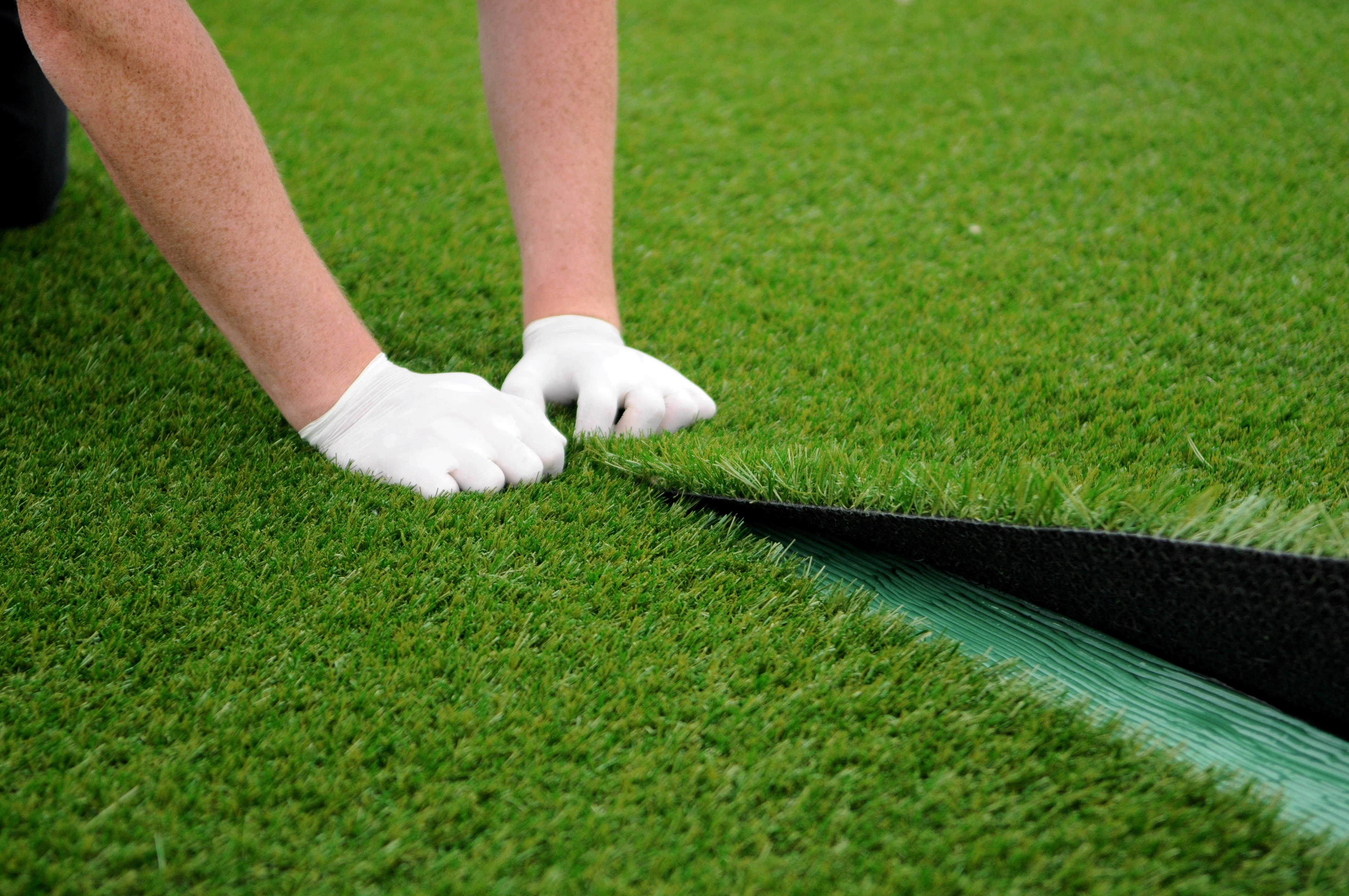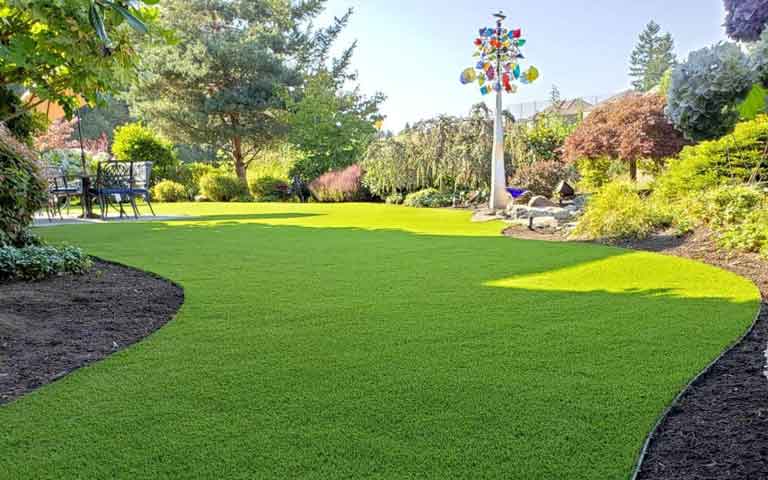Transform Your Outdoor Environment with Backyard Artificial Grass Canoga Park
Transform Your Outdoor Environment with Backyard Artificial Grass Canoga Park
Blog Article
Top Factors to Take Into Consideration Artificial Turf for a Low-Maintenance and lush Yard
As home owners progressively seek sustainable remedies for outside spaces, artificial grass offers an enticing option to traditional yards. The benefits extend past plain visual appeals and sustainability; checking out the diverse ramifications of synthetic yard reveals a detailed technique to lawn management that values much deeper factor to consider.
Year-Round Greenery
One of the most significant advantages of fabricated lawn is its capacity to give year-round plant, despite climate conditions. House owners frequently encounter difficulties in maintaining a vibrant lawn as a result of seasonal changes, dry spells, or hefty rains. Synthetic grass removes these problems, ensuring a constantly lush look throughout the year.
This artificial choice is engineered to hold up against diverse weather condition scenarios, from burning summertime heat to cold winter season temperature levels. Unlike natural turf, which may brown or become uneven during severe problems, artificial lawn preserves its vivid color and texture, enhancing the visual charm of any type of landscape.
Additionally, synthetic grass is immune to insects and illness that commonly impact natural grass. This durability contributes to its enduring beauty, as there is no need for chemical therapies or plant foods that can be damaging to the atmosphere. In addition, home owners can delight in the visual advantages of a well-maintained lawn without the cyclical difficulties posed by natural yard care (artificial grass).
Decreased Maintenance Efforts
Fabricated lawn dramatically decreases upkeep efforts, enabling house owners to delight in a beautiful grass without the lengthy jobs linked with all-natural turf treatment. Among one of the most remarkable benefits of artificial lawn is the elimination of normal mowing. Without any need for a lawnmower, property owners conserve both time and the cost of upkeep linked with this tools.

Cleaning up artificial grass is straightforward; a simple rinse with a hose or the periodic brushing to get rid of particles is typically enough - artificial grass. This ease of treatment enables homeowners to spend more time appreciating their exterior rooms as opposed to laboring over them. In summary, the lowered maintenance efforts related to artificial turf make it an attractive option for those seeking a lovely, problem-free yard
Water Preservation Perks
The significant reduction in maintenance initiatives related to man-made grass reaches water conservation, making it an eco-friendly option for house owners. Conventional grass need significant amounts of water to stay vibrant and rich, commonly bring about too much water use, especially in deserts. On the other hand, man-made lawn removes the demand for normal watering, drastically decreasing the total water consumption in your yard.
By selecting artificial turf, property owners can save countless gallons of water each year. This change not just advantages specific homes but also adds to broader environmental initiatives intended at decreasing water waste. In locations experiencing water useful link deficiency, the adoption of fabricated turf can play a substantial role in minimizing the impacts of dry spell and guaranteeing that beneficial water sources are used much more successfully.
In addition, the setup of artificial grass can assist lower metropolitan water need, profiting the neighborhood in its entirety. With growing recognition of ecological concerns, choosing artificial yard offers as an aggressive step towards sustainable landscape design, assisting to maintain natural water resources while keeping an aesthetically pleasing outside room (artificial grass installation). In summary, artificial grass presents a compelling option for water conservation, straightening ecological responsibility with modern landscaping demands

Parasite and Allergic Reaction Decrease
A substantial advantage of mounting artificial lawn is its ability to reduce insects and irritants in outdoor spaces. Traditional turf yards usually act as breeding grounds for insects such as mosquitoes, ticks, and ants, which can develop pain and health risks for family pets and households. In contrast, man-made grass eliminates the natural product that brings in these parasites, consequently substantially reducing their populations in your backyard.
Furthermore, all-natural grass can harbor mold and mildew, pollen, and other allergens, which can trigger allergies and respiratory concerns for sensitive individuals. Artificial turf gives a cleaner environment, lowering the capacity for allergenic reactions. Unlike natural yard, synthetic grass does not create plant pollen, making it an excellent alternative for allergic reaction sufferers looking for to enjoy their outside areas without the danger of flare-ups.
Additionally, the lack of dirt in synthetic grass indicates there is less dust and dirt, further decreasing airborne allergens. This low-maintenance choice not only boosts the visual appeal of your yard but additionally advertises a healthier outside setting, enabling family members to enjoy their lawns without the consistent fear of parasites and irritants. Therefore, fabricated turf is a strategic choice for those prioritizing convenience and health in their outdoor space.
Long-Term Cost Cost Savings
Spending in artificial turf can lead to substantial long-lasting price savings for homeowners. Artificial yard gets rid of the requirement for normal lawn upkeep expenditures, such as mowing, feeding, and watering.
Furthermore, the durability of artificial grass even more boosts its cost-effectiveness. Many top quality artificial lawn products can last 15 to 25 years with marginal upkeep, reducing the demand for substitute or extensive repair work. On the other hand, natural lawn might need constant reseeding and routine treatment, which can rapidly add up in prices.
Utility cost savings are another important variable. Property owners can anticipate to see reduced water expenses, as synthetic lawn does not call for irrigation. In additional reading addition, the reduction in grass treatment solutions can liberate valuable time and resources, permitting homeowners to allot their spending plans somewhere else.
Final Thought
In summary, artificial grass offers many advantages for property owners looking for a low-maintenance and vivid landscape. Its ability to give year-round plant, paired with lowered upkeep initiatives and significant water conservation, makes it an appealing selection. Additionally, the decrease of pests and allergens adds to a healthier outdoor atmosphere. Inevitably, the long-term price savings related to synthetic lawn solidify its status as a sensible and lasting remedy for improving outdoor rooms.
Synthetic grass substantially reduces maintenance efforts, enabling property owners to appreciate an excellent lawn great post to read without the time-consuming tasks linked with natural grass treatment.The substantial decrease in maintenance efforts connected with artificial grass expands to water conservation, making it an ecologically pleasant alternative for house owners. In contrast, fabricated grass eliminates the requirement for regular watering, considerably reducing the general water usage in your backyard.
In areas experiencing water deficiency, the adoption of synthetic grass can play a substantial duty in mitigating the results of drought and making certain that valuable water resources are made use of more successfully.
With expanding awareness of environmental problems, choosing artificial grass offers as a proactive action towards sustainable landscaping, aiding to preserve natural water resources while maintaining an aesthetically pleasing outside space.
Report this page